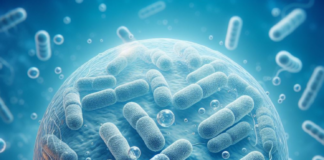BENEFITS OF A KETO DIET
Low-carb diets have been around for a long time, and their benefits are well reported.
Over the years, they have received some negative press, with many believing that the high fat intake was damaging, causing an increase in heart-disease risk factors and cholesterol levels.
However, in the last few decades, many research studies have been undertaken looking into the merits of a low-carb lifestyle.
These studies have found that a low-carb diet can, in fact, be healthy and beneficial, debunking many of the older beliefs.
The diets themselves have also evolved. The keto diet, while low carb, is based on healthy, balanced eating.
It’s about choosing a good variety of foods to nourish your body and being mindful about what you eat.
Benefits Of A Keto Diet List
Weight loss
One of the top reasons many people are drawn to a low-carb diet is to lose weight.
Cutting the carbs from your diet is a quick and easy way to drop fat and lose pounds. There can be a sudden and dramatic weight loss in the initial stages, but this is mostly water weight.
However, following the diet long-term can lead to substantial but steady weight loss, and
then help you to maintain your target weight.
There are a few reasons why low-carb diets are more effective than, for example, low-fat diets. For a start, the increase in eating fat-based foods means you generally feel fuller for longer.
When removing carbs from your diet while eating moderate protein and high-fat products, appetite tends to decrease.
This naturally leads to fewer calories being consumed and therefore a drop in weight. This is significant.
Many dieters fail because they are hungry. Hunger encourages bad food choices. Take hunger away, and you’re far more likely to be able to stick to your diet.
The sustained weight loss comes from treating the switch to keto as a lifestyle change and not a diet.
Pushing the body into ketosis and then stopping once you hit your target weight will send your body yo-yoing and increase the likelihood of weight gain.
It’s much better to enter into a keto diet as a long-term plan. Once you are at goal weight, you may be able to introduce slightly more carbs from a healthy source and still retain the benefits.
Improved blood results
The keto diet has many benefits that you can’t see on the outside as noticeably as weight loss.
One of these is an escalation in HDL cholesterol levels. As previously mentioned, one of the concerns about a diet high in fat was increased cholesterol, but it is important to understand how cholesterol works in the body.
First, your body has both cholesterol and lipoproteins, the latter of which are carriers that
transport cholesterol around your body.
These molecules are made up of fat and protein. There are quite a few different types of lipoproteins. Still, the ones we hear about most often are LDL and HDL, standing for low-density lipoproteins and high-density lipoproteins, respectively.
LDL cholesterol is the ‘bad’ type. It carries cholesterol from the liver and into the rest of the body, damaging it. It’s important to keep this LDL cholesterol low.
HDL cholesterol does the opposite job: it carries cholesterol away from your body and to the liver, where it can be used as needed or removed as a waste product.
High levels of HDL cholesterol lower your risk of heart disease. HDL cholesterol levels can
be increased by eating good fat sources, which is the main component of the keto diet.
Low levels of HDL cholesterol can decrease the risk of diabetes as well as heart problems.
Worldwide studies have shown that a low-carb diet can help to increase HDL cholesterol levels.
The keto diet is also reported to help lower triglyceride levels. Triglycerides are fat molecules found in your blood.
An elevated level of triglycerides can increase your risk of heart disease. Triglycerides
are usually checked at the same time as cholesterol, though they are different.
High levels of triglycerides may thicken the walls of the arteries, which can lead
to a stroke or heart attack.
High triglycerides can sometimes be noted alongside other conditions, such as type 2 diabetes, thyroid problems, and liver disease.
Therefore, it’s important to control your triglyceride levels.
Some of the best ways to reduce your triglyceride levels are to lose weight if you need to, reduce excess calorie consumption, avoid sugary, refined, and simple carbohydrates, and eat plenty of healthy fats.
You can see why the keto diet would have such a good effect, as it ticks all of these boxes.
Finally, the keto diet has a positive impact on your blood pressure – it helps lower it. Lower blood pressure means a reduced risk of many diseases and conditions.
Impact on insulin
Once we consume carbohydrates, they are broken down into sugars – mainly glucose – which we can use as fuel.
Our body is very efficient at doing this, especially as we have been eating carbs for so long.
This glucose enters the bloodstream and raises our blood sugar levels – a natural process.
The body then responds to this rise in blood sugar levels by producing insulin. Insulin is an important hormone with many key roles to play in the body.
It tells the liver, muscle, and fat cells when blood sugar levels are high, and they have to take in glucose from the blood, using it for energy.
This helps to control blood glucose levels. If the body has sufficient energy, insulin
alerts the liver to take the excess glucose and store it as glycogen.
People who are unable to produce significant levels of insulin have type 1 diabetes. As the body has no signal to take glucose from the blood, the body will search for alternative fuel sources.
The liver will produce ketones to compensate for energy. However, in this case, the high levels of ketones can lead to ketoacidosis, a hazardous condition for a person with diabetes.
It’s important to note that, despite sounding similar, ketoacidosis and ketosis are very different things. Diabetic ketoacidosis (OKA) is life-threatening and is caused by the combination of high blood sugar, high levels of ketones, and insufficient insulin.
This is why it is important for type 1 diabetic to monitor their diet and inject the correct
amount of insulin.
Type 2 diabetes occurs when the body is not responding effectively to the insulin it’s producing.
It is usually connected with being overweight or inactive. The body is then less able to take the glucose from the blood, leading to higher blood sugar levels.
The keto diet can be beneficial in helping to treat and manage the symptoms of type 2
diabetes.
It helps to lower blood sugar levels naturally by not consuming carbohydrates. This, in turn, lowers the need for insulin.
Wellbeing
The keto diet can have a positive impact on your brain health and wellbeing too. The brain is used to using glucose as its fuel source, but it can also run on ketones.
It’s thought that using ketones can have many positive impacts on the brain. Much of this is embedded in complex science, but followers of the diet give anecdotal evidence of improvements.
One of the common responses is that the diet results in better mental clarity and improved focus.
Some describe it as a ‘fog’ lifting that they never knew there. A keto diet can also contribute to a reduction in migraines and improvements in memory.
One theory behind this is that eating high carbohydrates, straightforward ones full of sugar, causes our blood sugar levels to rise and fall rapidly.
Remember that 3 pm afternoon slump you may have experienced? It’s often due to your blood sugar levels dropping after lunch and causing lethargy and fatigue.
It’s hard to stay focused on what you’re doing when you feel this way. Following a keto diet
means that you will avoid those rises and falls of blood sugar so that your energy levels will stay steady all day.
As well as feeling more mentally alert, followers often say their energy levels start to increase.
This is especially true once the cravings for carbs as an energy source start to abate and the body gets more productive at using ketones for fuel.
Part of this is due to the way that insulin levels are stabilized, as mentioned above.
Also, there is plenty of fat in the body for energy use. Now that your body has become good at using fat for fuel, it can start to tap into these reserves, giving you plenty of energy.
There are also reports that people start sleeping better once on the keto diet, though there is less evidence to suggest why this might happen.
It’s one benefit that is certainly a positive, regardless. The diet itself often improves general wellbeing, but part of it moves away from a previous unhealthy lifestyle.
By taking control of the food you eat, you become less reliant on giving in to junk-food
cravings, which can be quite empowering.
Varied benefits
While we have discussed many of the most common benefits of the keto diet here, delve into the online forums and websites, and you will read many, many more benefits.
Most of these are contributed by people who have tried the diet and found that it has
had a great impact on areas in their life.
For example, the anti-inflammatory benefits of eating a keto diet could aid those with IBS. It has been shown that reducing sugar intake can help to control IBS symptoms.
Another possible benefit is for women who suffer from polycystic ovary syndrome (PCOS), which is often linked to insulin resistance.
The keto diet could help to manage hormone levels and improve the side effects of the condition.
The best way to find out the benefits is to try the diet for yourself. It might be worth keeping a diary as you progress so that you can mark down improvements as you notice them.
It’s a good way to stay motivated if you feel the urge to eat some carbs and end the diet.








